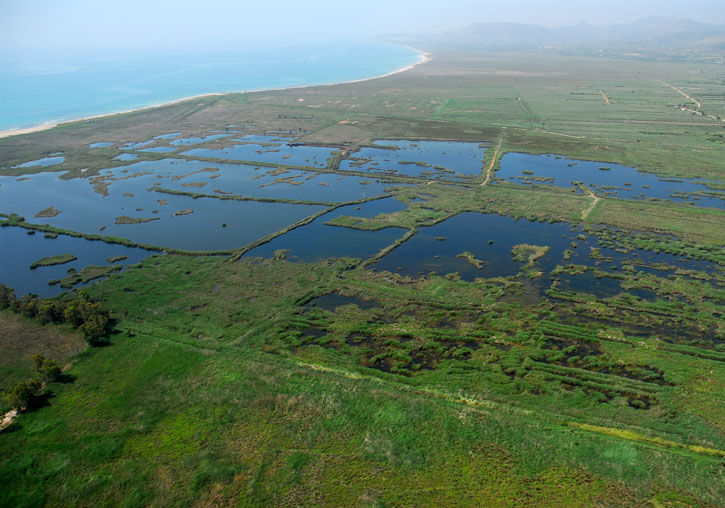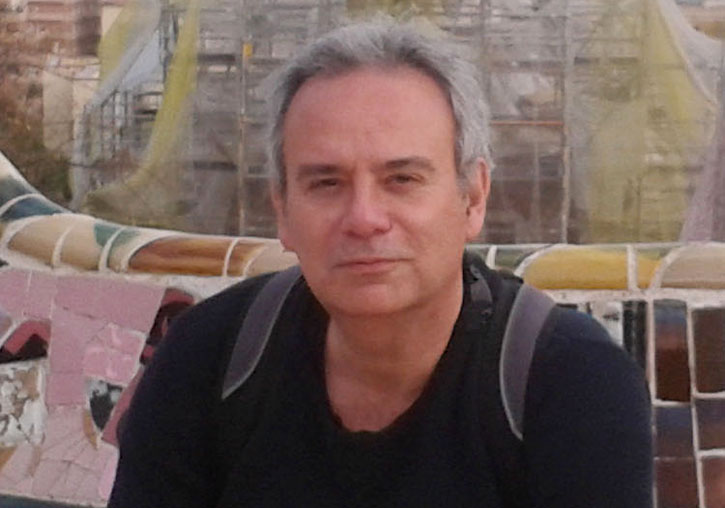
Antonio Camacho, professor at the Department of Microbiology and Ecology at the University of Valencia (UV), leads the European LIFE Wetlands4Climate project in Spain, together with the Global Nature Foundation (FGN). This proposal works so that the management of Mediterranean wetlands generates multiple alliances and creates opportunities for socioeconomic development in rural areas and represents an important advance in understanding the carbon balances of Mediterranean wetlands. Today, Monday the 24th, is World Climate Change Day.
The preliminary results of this project and other previous ones developed by the Limnology research group of the Cavanilles Institute of Biodiversity and Evolutionary Biology (UV), directed by Antonio Camacho, confirm that the state of conservation of a wetland defines their capacity to mitigate the climate change. According to the expert, they find their maximum capacity for carbon retention and climate mitigation when they are in a good state of conservation, and they can, on the contrary, even become net emitters of greenhouse gases if they are degraded. In addition, the progress made is already being applied in similar studies and in national and international policies, and the LIFE Wetlands4Climate project is working on the development of a national standard methodology to integrate wetlands into the voluntary carbon market.
“We are looking at how much carbon a wetland is really capable of retaining based on its conservation status and for the first time, from a climate perspective, what soil, vegetation and water management measures are most appropriate to maximise carbon sequestration”, highlights the coordinator of the European project and FGN technician, Vanessa Sánchez.
The Intergovernmental Panel on Climate Change (IPCC) recognises that reducing or eliminating greenhouse gas (GHG) emission sources will no longer be enough to achieve the goals of the Paris Agreement. With the global commitments acquired to date, the studies speak of an increase of between 2.4 and 2.7 ºC compared to the 1.5 ºC initially set as a limit. Although the first and fundamental step must be the drastic reduction of GHG emissions, all IPCC scenarios that keep global warming below this range also require large-scale carbon sequestration in sinks.
To reach this reduction, the best known elements are forests, but there are other lesser known natural spaces capable of fixing large amounts of carbon, as is the case of wetlands. Despite its importance, the Ramsar Convention warns that during the last century more than 60% of the planet’s wetlands have disappeared. The most recent case of alarm has been the drying up of the last permanent pond in Doñana, a very infrequent situation and especially relevant due to its symbology in the territory and for being the largest nature reserve in Europe.
European project
LIFE Wetlands4Climate works so that Mediterranean wetlands, one of the most sensitive and threatened habitats in the European Union, can be managed and generate multiple alliances, and create opportunities for socioeconomic development in rural areas. It is a project supported by the European Commission through the LIFE financial instrument, coordinated by the Global Nature Foundation and developed together with the Cavanilles Institute for Biodiversity and Evolutionary Biology of the University of Valencia, the EFE Agency and the Valencia Climate and Energy Foundation. The project also has the support for its execution of the State Research Agency of the Government of Spain, the Department of Agriculture, Rural Development, Climate Emergency and Ecological Transition of the Valencian Government, the Department of Conservation of Natural Areas and Devesa-Albufera del Valencia City Council, Torreblanca City Council and Naturgy.
Annex photo caption:
- Antonio Camacho.
Images:













